- Home
- Christie Golden
Lord Of The Clans Page 2
Lord Of The Clans Read online
Page 2
The guard said nothing as he led them out of the encampment several miles into the surrounding woods. Sure enough, the clearing to which he took them was secluded and verdant. Durotan could hear the trickling of the water. He turned to Draka.
“I knew my old friend could be trusted,” he said. “It will not be long before —”
And then Durotan froze. He had heard another noise over the splashing of the nearby stream. It was the snap of a twig under a heavy foot. . . .
He screamed his battle cry and reached for his ax. Before he could even grasp the hilt the assassins were upon him. Dimly, Durotan heard Draka’s shrill scream of rage, but could spare no instant to turn to her aid. Out of the corner of his eye, he saw Sharptooth spring on one intruder, knocking him to the earth.
They had come silently, with none of the pride in the hunt that was so integral to orcish honor. These were assassins, the lowest of the low, the worm beneath the foot. Except these worms were everywhere, and though their mouths remained closed in that unnatural silence, their weapons spoke with a purposeful tongue.
An ax bit deep into Durotan’s left thigh and he fell. Warm blood flowed down his leg as he twisted and reached with his bare hands, trying desperately to throttle his would-be murderer. He stared up into a face frighteningly devoid of good, honest orc rage, indeed of any emotion at all. His adversary lifted the ax again. With every ounce of strength left to him, Durotan’s hands closed on the orc’s throat. Now the worm did show emotion as he dropped the ax, trying to pry Durotan’s thick, powerful fingers from his neck.
A brief, sharp howl, then silence. Sharptooth had fallen. Durotan did not need to look to see. He still heard his mate grunting obscenities at the orc who, he knew, would slay her. And then a noise that sent fear shivering through him split the air: his infant son’s cry of terror.
They shall not kill my son! The thought gave Durotan new strength and with a roar, despite the lifeblood ebbing from the severed artery in his leg, he surged upward and managed to get his foe beneath his huge bulk. Now the assassin squirmed in genuine terror. Durotan pressed hard with both hands and felt the satisfying snap of neck beneath his palms.
“No!” The voice belonged to the treasonous guard, the orc who had betrayed them. It was high, humanish with fear. “No, I’m one of you, they are the target —”
Durotan looked up in time to see a huge assassin swing a blade almost bigger than he was in a smooth, precise arc. Doomhammer’s personal guard didn’t stand a chance. The sword sliced cleanly through the traitor’s neck, and as the severed, bloody head flew past him, Durotan could still see the shock and surprise on the dead guard’s face.
He turned to defend his mate, but he was too late. Durotan cried aloud in fury and raw grief as he saw Draka’s still body, hacked almost to pieces, lying on the forest floor in a widening pool of blood. Her killer loomed over her, and now turned his attention to Durotan.
In a fair battle, Durotan would have been a match for any three of them. Grievously wounded as he was, with no weapon save his hands, he knew he was about to die. He did not try to defend himself. Instead, out of deep instinct he reached for the small bundle that was his child.
And stared foolishly at the spurting fountain of blood that sprang from his shoulder. His reflexes were slowing from lack of blood, and before he could even react, his left arm joined the right to lie, twitching, on the ground. The worms would not even let him hold his son one more time.
The injured leg could bear him no longer. Durotan toppled forward. His face was inches away from that of his son’s. His mighty warrior’s heart broke at the expression on the baby’s face, an expression of total confusion and terror.
“Take . . . the child,” he rasped, amazed that he could even speak.
The assassin bent close, so that Durotan could see him. He spat in Durotan’s eye. For a moment, Durotan feared he would impale the baby right in front of his father’s eyes.
“We will leave the child for the forest creatures,” snarled the assassin. “Perhaps you can watch as they tear him to bits.”
And then they were gone, as silently as they had left. Durotan blinked, feeling dazed and disoriented as the blood left his body in rivers. He tried again to move and could not. He could only stare with failing eyesight at the image of his son, his small chest heaving with his screams, his tiny fists balled and waving frantically.
Draka . . . my beloved . . . my little son . . . I am so sorry. I have brought us to this. . . .
The edges of his vision began to turn gray. The image of his child began to fade. The only comfort that Durotan, chieftain of the Frostwolf clan, had as his life slowly ebbed from him was the knowledge that he would die before having to witness the horrible spectacle of his son being eaten alive by ravenous forest beasts.
“By the Light, what a noise!” Twenty-two-year-old Tammis Foxton wrinkled his nose at the noise that was echoing through the forest. “Might as well turn back, Lieutenant. Anything that loud is certain to have frightened any game worth pursuing.”
Lieutenant Aedelas Blackmoore threw his personal servant a lazy grin.
“Haven’t you learned anything I’ve tried to teach you, Tammis?” he drawled. “It’s as much about getting away from that damned fortress as bringing back supper. Let whatever it is caterwaul all it likes.” He reached for the saddlebag behind him. The bottle felt cool and smooth in his hand.
“Hunting cup, sir?” Tammis, despite Blackmoore’s comments, had been ideally trained. He extended a small cup in the shape of a dragon’s head that had been hooked onto his saddle. Hunting cups were specifically designed for such a purpose, having no base upon which to sit. Blackmoore debated, then waved the offer away.
“One too many steps.” With his teeth he pulled out the cork, held it in one hand, and raised the bottle’s mouth to his lips.
Ah, this stuff was sweet. It burned an easy trail down his throat and into his gut. Wiping his mouth, Blackmoore recorked the bottle and put it back in the saddlebag. He deliberately ignored Tammis’s look, quickly averted, of concern. What should a servant care how much his master drank?
Aedelas Blackmoore had risen swiftly through the ranks because of his almost incredible ability to slice a swath through the ranks of orcs on the battlefield. His superiors thought this due to skill and courage. Blackmoore could have told them that his courage was of the liquid variety, but he didn’t see much point in it.
His reputation also didn’t hurt his chances with the ladies. Neither did his dashing good looks. Tall and handsome, with black hair that fell to his shoulders, steel-blue eyes, and a small, neatly trimmed goatee, he was the perfect heroic soldier. If some of the women left his bed a little sadder but wiser, and more than occasionally with a bruise or two, it mattered nothing to him. There were always plenty more where they came from.
The ear-splitting sound was starting to irritate him. “It’s not going away,” Blackmoore growled.
“It could be an injured creature, sir, incapable of crawling away,” said Tammis.
“Then let’s find it and put it out of our misery,” replied Blackmoore. He kicked Nightsong, a sleek gelding as black as his name, with more force than was necessary and took off at a gallop in the direction of the hellish noise.
Nightsong came to such an abrupt halt that Blackmoore, usually the finest of riders, nearly sailed over the beast’s head. He swore and punched the animal in the neck, then fell silent as he saw what had caused Nightsong to stop so quickly.
“Blessed Light,” said Tammis, riding up beside him on his small gray pony. “What a mess.”
Three orcs and a huge white wolf lay sprawled on the forest floor. Blackmoore assumed that they had died recently. There was as yet no stink of decomposition, though the blood had congealed. Two males, one female. Who cared what sex the wolf had been. Damned orcs. It would save humans like him a lot of trouble if the brutes turned on themselves more often.
Something moved, and Blackmoore saw what it was that had
been shrieking so violently. It was the ugliest thing he had ever seen . . . an orc baby, wrapped in what no doubt passed for a swaddling cloth among the creatures. Staring, he dismounted and went to it.
“Careful, sir!” yelped Tammis. “It might bite!”
“I’ve never seen a whelp before,” said Blackmoore. He nudged it with his boot toe. It rolled slightly out of its blue and white cloth, screwed its hideous little green face up even more, and continued wailing.
Though he had already downed the contents of one bottle of mead and was well into the second, Blackmoore’s mind was still sharp. Now, an idea began to form in his head. Ignoring Tammis’s unhappy warnings, Blackmoore bent over and picked up the small monster, tucking the blue and white cloth snugly about it. Almost immediately, it stopped crying. Blue-gray eyes locked with his.
“Interesting,” said Blackmoore. “Their infants have blue eyes when they are young, just as humans do.” Soon enough those eyes would turn piggy and black, or red, and gaze upon all humans with murderous hate.
Unless. . . .
For years, Blackmoore had worked twice as hard to be half as well regarded as other men of equal birth and rank. He had labored under the stigma of his father’s treachery, and had done everything possible to gain power and position. He was still skeptically regarded by many; “blood of a traitor” was often muttered when those around him thought him unable to hear. But now, perhaps he might one day not have to listen to those cutting comments any longer.
“Tammis,” he said thoughtfully, gazing intently into the incongruously soft blue of the baby orc’s eyes, “did you know that you have the honor to serve a brilliant man?”
“Of course I did, sir,” Tammis replied, as was expected. “May I inquire as to why this is particularly true at this moment?”
Blackmoore glanced up at the still-mounted servant, and grinned. “Because Lieutenant Aedelas Blackmoore holds in his hands something that is going to make him famous, wealthy, and best of all, powerful.”
TWO
Tammis Foxton was in a state of high agitation, due directly and inevitably to the fact that his master was terribly displeased. When they had brought the orc whelp home Blackmoore had been much as he was on the battlefield: alert, interested, focused.
The orcs were proving less and less of a challenge each day, and men used to the excitement of almost daily battles were growing bored. The planned bouts were proving extremely popular, giving men an outlet for their pent-up energies and providing a chance for a little money to change hands as well.
And this orc was going to be raised firmly under human control. With the speed and power of the orcs, but the knowledge that Blackmoore would impart, he would be all but unconquerable in the planned matches that were beginning to spring up.
Except the ugly little thing wouldn’t eat, and had grown pale and quiet over the last several days. Nobody said the words, but everyone knew. The beast was dying.
That had enraged Blackmoore. Once, he had even seized the small monster and tried to shove finely chopped meat down its throat. He succeeded only in nearly choking the orc, whom he had named “Thrall,” and when Thrall had spat up the meat he had literally dropped the orc on the straw and strode, cursing, from the stable in which the orc was temporarily housed.
Now Tammis walked around his master with the utmost discretion, choosing his words even more carefully than usual. And yet, more often than not, he had left an encounter with Lieutenant Blackmoore with a bottle — sometimes empty, sometimes not — flying behind him.
His wife Clannia, a fair-haired, apple-cheeked woman who served in the kitchens, now set a plate of cold food in front of him on the wooden table and rubbed his tight neck as he sat down to eat. Compared to Blackmoore, the beefy, loud cook who ran the kitchens was a veritable Paladin.
“Any word?” Clannia asked hopefully. She awkwardly sat down beside him at the rough wooden table. She had given birth a few weeks ago and still moved with hesitation. She and their eldest daughter, Taretha, had eaten many hours ago. Unseen by either parent, the girl, who slept with her baby brother in a small bed beside the hearth, had woken at her father’s entrance. Now she sat up, her yellow curls covered by a sleeping cap, and watched and listened to the adult conversation.
“Aye, and all bad,” said Tammis heavily as he spooned congealing potato soup into his mouth. He chewed, swallowed, and continued. “The orc is dying. It won’t take anything Blackmoore tries to feed it.”
Clannia sighed and reached for her mending. The needle flashed back and forth, stitching together a new dress for Taretha. “It’s only right,” she said softly. “Blackmoore had no business bringing something like that into Durnholde. Bad enough we’ve got the mature ones screaming all day long. I can’t wait until the internment camps are finished and they’re no longer Durnholde’s problem.” She shuddered.
Taretha watched, silent. Her eyes were wide. She had heard vague mutterings about a baby orc, but this was the first chance she had had to hear her parents discussing it. Her young mind raced. Orcs were so big and scary-looking, with their sharp teeth, green skin, and deep voices. She’d only caught the barest glimpses of them, but she had heard all the stories. But a baby wouldn’t be big and scary. She glanced over at the small figure of her brother. Even as she watched, Faralyn stirred, opened his rosebud mouth, and announced that he was hungry with a shrill cry.
In a smooth motion, Clannia rose, put down her sewing, picked up her son, bared a breast, and set him to nursing. “Taretha!” she scolded. “You should be asleep.”
“I was,” Taretha said, rising and running to her father. “I heard Da come in.”
Tammis smiled tiredly and permitted Taretha to climb in his lap. “She won’t go back to sleep until Faralyn is done,” he told Clannia. “Let me hold her for a while. I so seldom get to see her, and she’s growing like a weed.” He pinched her cheek gently and she giggled.
“If the orc dies, it will go badly with all of us here,” he continued.
Taretha frowned. The answer was obvious. “Da,” she said, “if it’s a baby, why are you trying to make it eat meat?”
Both adults stared at her, stunned. “What do you mean, little one?” asked Tammis in a strained voice.
Taretha pointed to her nursing brother. “Babies drink milk, like Faralyn does. If this baby orc’s mother is dead, it can’t drink its milk.”
Tammis continued to stare; then a slow smile spread across his weary face. “Out of the mouths of babes,” he whispered, and then hugged his daughter to him so tightly that she began to squirm in protest.
“Tammis. . . .” Clannia’s voice was taut.
“My dearest,” he said. He held Taretha with one arm and reached across the table to his wife with the other. “Tari’s right. For all their barbaric ways, the orcs do nurse their young, as we do. Our best guess is that the orc infant is but a few months old. It’s no wonder it can’t yet eat meat. It doesn’t even have any teeth yet.” He hesitated, but Clannia’s face grew pale, as if she knew what he was going to say.
“You can’t mean . . . you can’t ask me to. . . .”
“Think what it will mean to our family!” Tammis exclaimed. “I’ve served Blackmoore for ten years. I’ve never seen him this excited about anything. If that orc survives because of us, we will lack for nothing!”
“I . . . I can’t,” stammered Clannia.
“Can’t what?” asked Taretha, but they both ignored her.
“Please,” begged Tammis. “It’s only for a little while.”
“They’re monsters, Tam!” cried Clannia. “Monsters, and you . . . you want me to. . . .” She covered her face with one hand and began to sob. The baby continued to nurse, unperturbed.
“Da, why is Ma crying?” asked Taretha, anxious.
“I’m not crying,” said Clannia thickly. She wiped her wet face and forced a smile. “See, darling? All is well.” She looked at Tammis, and swallowed hard. “Your Da just has something he needs me to do, that’s
all.”
When Blackmoore heard that his personal servant’s wife had agreed to wet-nurse the dying orc baby, the Foxton family was deluged with gifts. Rich fabrics, the freshest fruits and choicest meats, fine beeswax tapers — all began to appear regularly at the door of the small room that the family called their home. Soon, that room was exchanged for another, and then for larger quarters still. Tammis Foxton was given his own horse, a lovely bay he named Ladyfire. Clannia, now called Mistress Foxton, no longer had to report to the kitchens, but spent all her time with her children and tending to the needs of what Blackmoore called his “special project.” Taretha wore fine clothes and even had a tutor, a fussy, kind man named Jaramin Skisson, sent to teach her to read and write, like a lady.
But she was never allowed to speak about the small creature that lived with them for the next full year, who, when Faralyn died of a fever, became the only baby in the Foxton household. And when Thrall had learned to eat a vile concoction of blood, cow’s milk, and porridge with his own small hands, three armed guards came and wrested him away from Taretha’s arms. She cried and protested, and received a harsh blow for her pleas.
Her father held her and shushed her, kissing her pale cheek where a red hand imprint was visible. She quieted after a while, and, like the obedient child she wished to appear, agreed never to speak of Thrall again except in the most casual of terms.
But she vowed she would never forget this strange creature that had been almost like a younger brother to her.
Never.
“No, no. Like this.” Jaramin Skisson stepped beside his pupil. “Hold it thus, with your fingers here . . . and here. Ah, that’s better. Now make this motion . . . like a snake.”
“What is a snake?” asked Thrall. He was only six years old, but already almost as big as his tutor. His large, clumsy hands did not hold the delicate, thin stylus easily, and the clay tablet kept slipping out of his grasp. But he was stubborn, and determined to master this letter that Jaramin called an “S.”

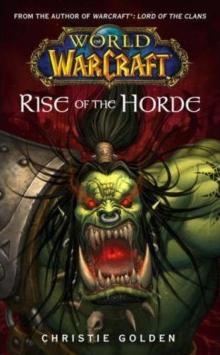 Rise of the Horde
Rise of the Horde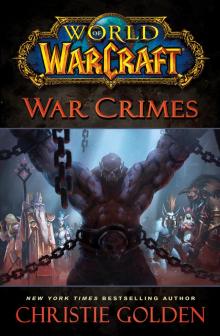 World of Warcraft: War Crimes
World of Warcraft: War Crimes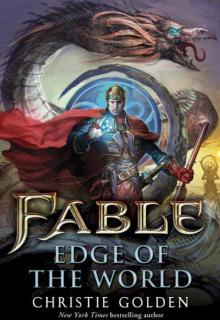 Fable: Edge of the World
Fable: Edge of the World Homecoming
Homecoming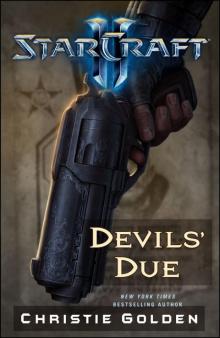 StarCraft II: Devil's Due
StarCraft II: Devil's Due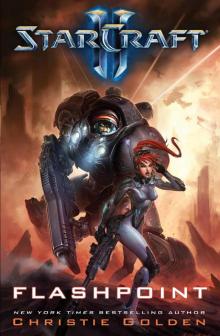 Starcraft II: Flashpoint
Starcraft II: Flashpoint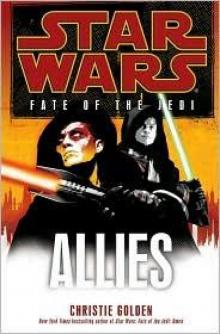 Allies
Allies Shadow Hunters
Shadow Hunters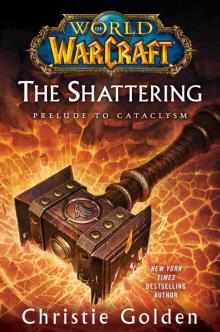 The Shattering: Prelude to Cataclysm wowct-1
The Shattering: Prelude to Cataclysm wowct-1 STAR TREK: VOY - Homecoming, Book Two - The Farther Shore
STAR TREK: VOY - Homecoming, Book Two - The Farther Shore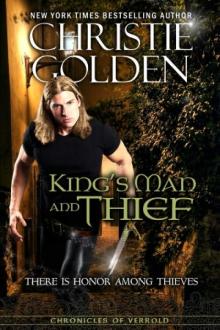 King's Man and Thief
King's Man and Thief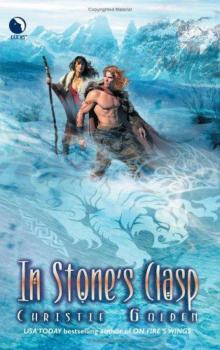 In Stone's Clasp
In Stone's Clasp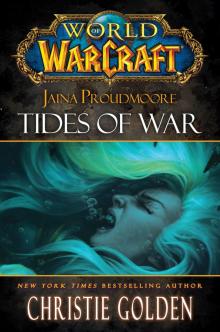 Jaina Proudmoore: Tides of War
Jaina Proudmoore: Tides of War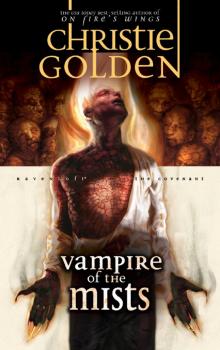 Vampire of the Mists
Vampire of the Mists Star Wars: Fate of the Jedi II: Omen
Star Wars: Fate of the Jedi II: Omen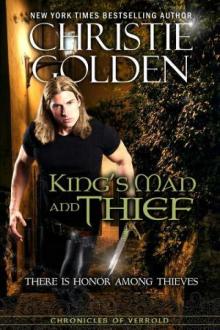 King's man and thief cov-2
King's man and thief cov-2 Star Trek
Star Trek StarCraft: Dark Templar: Twilight
StarCraft: Dark Templar: Twilight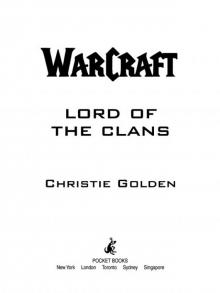 Lord Of The Clans
Lord Of The Clans ARKTIKA.1 (Short Story)
ARKTIKA.1 (Short Story)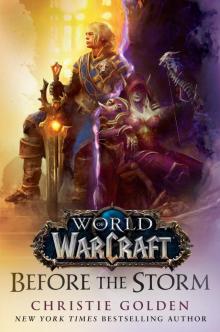 Before the Storm
Before the Storm STAR TREK: VOY - Homecoming, Book One
STAR TREK: VOY - Homecoming, Book One Shadow of Heaven
Shadow of Heaven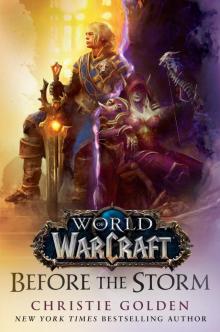 Before the Storm (World of Warcraft)
Before the Storm (World of Warcraft)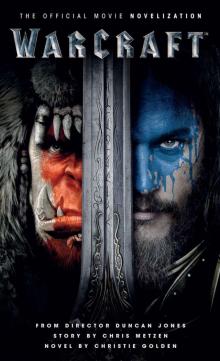 Warcraft Official Movie Novelization
Warcraft Official Movie Novelization Flashpoint
Flashpoint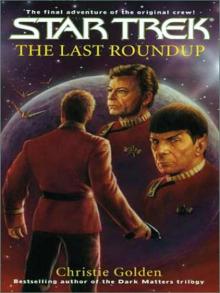 STAR TREK: The Original Series - The Last Roundup
STAR TREK: The Original Series - The Last Roundup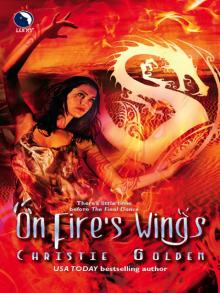 On Fire’s Wings
On Fire’s Wings Spirit Walk, Book One
Spirit Walk, Book One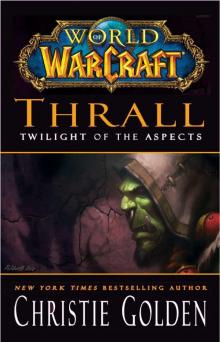 Thrall Twilight of the Aspects
Thrall Twilight of the Aspects Valerian and the City of a Thousand Planets
Valerian and the City of a Thousand Planets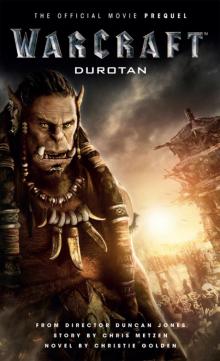 Warcraft
Warcraft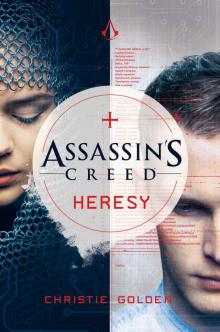 Assassin's Creed: Heresy
Assassin's Creed: Heresy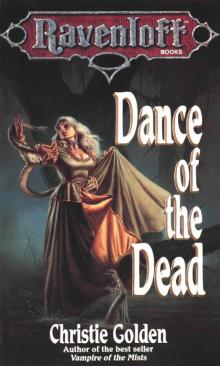 Dance of the Dead
Dance of the Dead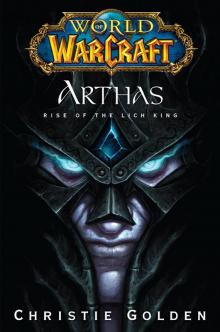 Arthas: Rise of the Lich King wow-6
Arthas: Rise of the Lich King wow-6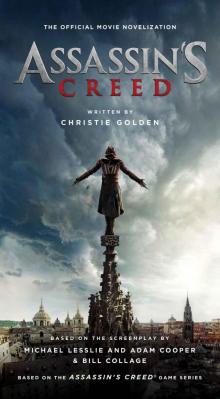 Assassin's Creed: The Official Movie Novelization
Assassin's Creed: The Official Movie Novelization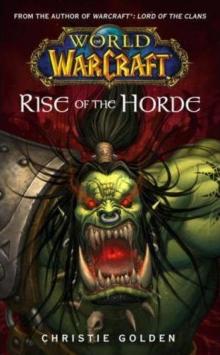 Rise of the Horde wow-2
Rise of the Horde wow-2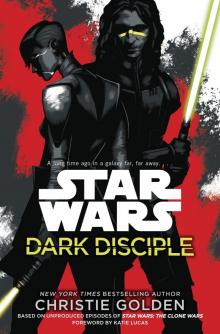 Dark Disciple
Dark Disciple Ghost Dance
Ghost Dance The Shattering
The Shattering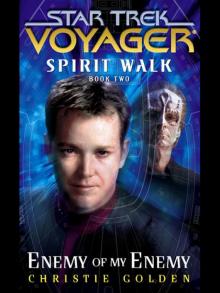 Spirit Walk, Book Two
Spirit Walk, Book Two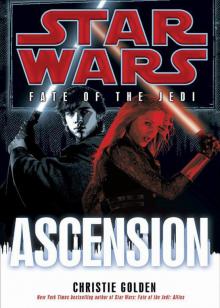 Star Wars: Fate of the Jedi: Ascension
Star Wars: Fate of the Jedi: Ascension Star Wars: Fate of the Jedi V: Allies
Star Wars: Fate of the Jedi V: Allies The Enemy Within
The Enemy Within Kindred Spirits
Kindred Spirits The Farther Shore
The Farther Shore Star Trek: Hard Crash (Star Trek: Starfleet Corps of Engineers Book 3)
Star Trek: Hard Crash (Star Trek: Starfleet Corps of Engineers Book 3) Twilight
Twilight